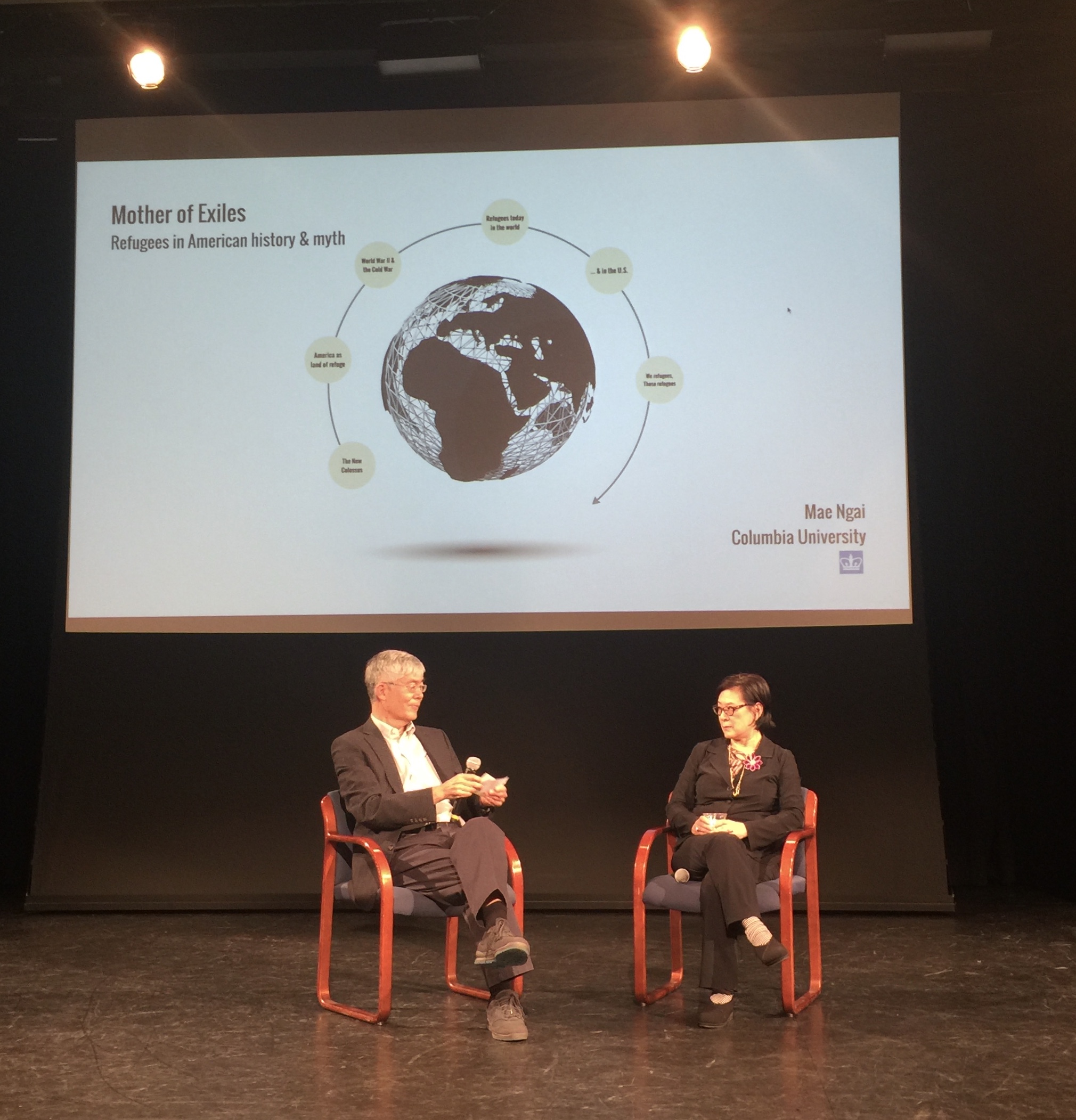(inspired by Professor Mai Ngai’s lecture)
Anti-Immigration sentiment has always been prevalent in America. From the Chinese Exclusion Acts and neglection of the Treaty of Guadalupe Hidalgo, to American imperialism in Southeast Asia and El Salvador, those who identify as Latinx and Asian seem to constantly be positioned as foreigners who are unable to assimilate into a white superiority-infested society.
According to Professor Mai Ngai, the U.S. accommodates 71.44 million refugees, asylum seekers and displaced people, with only 1% of the refugees being resettled. From a global scale, America has always been portrayed as a land of opportunity and freedom for immigrant families. So why was the denial rate for asylum 61.8% in 2017? Especially, with consideration of the fact that many have no choice but to emigrate because the conditions in their home country are life-threatening.
Thus, it is obvious that moving to America to achieve the “American Dream” model is not sympathetic and easily accessible for non-white immigrant bodies.
45’s insistence on detaining families who come from below America’s southern border is a prime example. His negligence to see how inhumane and traumatic the detainments are reflect the lack of empathy his organization (and those who follow him) hold towards refugees and undocumented immigrants being locked up in “ice boxes”. Moreover, this would ironically go against their entire “Pro-Life” campaign agenda and it is continuously obvious that they do not care for the wellbeing of people of color.
So, what can we do to counteract the forced imprisonment and deportation of those seeking refuge in America?
Here are some resources to look into:
- Freelance immigration lawyers: Whether you are a certified immigration lawyer or not, volunteer your time to educate immigrant folks on their rights. The American Civil Liberties Union has a Know Your Rights: Immigrant’s Rights list with scenarios that you can print out and share. Do research to find freelance immigration lawyers in your city to ensure that your local immigrant community has access to resources in the case of unlawful detainment and deportation. Volunteer with a freelance immigration lawyer. Seek out immigration lawyers to commit their service. You don’t have to be a lawyer to make a difference.
- Grassroots mobilization: Start off with navigating the ACLU website — a great start to understand how powerful and necessary grassroot mobilization is. Do research and locate your local immigration rights organization and get involved! In LA, The Coalition for Humane Immigrant Rights and Esperanza Immigrant Rights Project are great nonprofits to support. Specific to Southeast Asian deportation, SEARAC is located in D.C., but they also focus on the intersection between immigration and restorative justice.
- Attend deportation forums: The best way to educate yourself about the issue is to be an active citizen. You may feel a disconnect when reading about the experiences of immigration and deportation. However, attending these forums will allow you to hear real accounts from individuals who were victims of the system.
- Become a translator: Drawing onto previous points, you can volunteer your time to help bridge the language barrier between immigrants and lawyers or grassroot organizers. Language is powerful and voices deserve to be heard, even if it’s in a different mother tongue.
- Read Mae Ngai’s books. Immigration and Ethnic History (2012), Impossible Subjects (2004) and The Lucky Ones: One Family and the Extraordinary Invention of Chinese America (2010) all have important historical context to understand the issues revolving around deportation and immigration. You will come to realize that these two concepts are not recent issues, but recurring issues that were introduced as a result of white supremacist colonization and its flourishment on lands that do not belong to them.
You do not have to be an activist to make a positive change. Ordinary people with good intentions can make an impact to create a better world for everyone to live in.

Comments are closed.